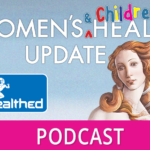For late-stage ovarian cancer patients, aspirin could be an easy, cheap, life extender.
Frequent use of low-dose aspirin may give ovarian cancer patients an extra 2.5 months of life, according to new Australian research.
The QIMR Berghofer Medical Research Institute study found that, compared with non-users and infrequent users, those who used low-dose aspirin at least four days a week had a 2.5-month increase in mean survival at five years post-diagnosis.
Professor Susan Ramus, an international expert in ovarian cancer research from the University of NSW, who was not involved in the research, said the findings were “very positive”.
“This is one of the first modifiable factors that patients with ovarian cancer can do for themselves to improve their situation,” Professor Ramus told TMR.
The study followed more than 900 Australian women aged 21-79 with ovarian cancer and looked at how often they had used nonsteroidal anti-inflammatory drugs (NSAIDs) such as aspirin, in the year before and after diagnoses. The women who reported taking NSAIDs frequently (at least four days a week) lived 2.5 months longer on average than occasional or non-users, regardless of age.
Most of the frequent users were taking daily low-dose aspirin, according to the paper published in the Journal of the National Cancer Institute.
“It’s really hard to separate out what patients with less serious disease are able to do versus patients who have worse disease. It’s very hard to tease apart, and that’s why I think this study is particularly good because they’ve controlled for a lot of different factors, and they’ve done a very careful analysis,” Professor Ramus said.
Lead author Dr Azam Majidi, an epidemiologist and ovarian cancer researcher, told TMR that aspirin’s anti-inflammatory effect was the key mechanism at work.
“We know that there is a root causality effect between chronic inflammation and tumour growth and cancer progression,” she said.
“What these medications are doing is breaking that inflammation pathway.”
While 2.5 months doesn’t sound like much, the costs of aspirin compared with more specialised medications make the benefits significant, said Dr Majidi.
“Two and a half months is an average survival benefit,” she told TMR. “For some women it will be longer, for others it may be a shorter time. We have no idea yet which women aspirin may be more beneficial for.
“But when you compare aspirin – a relatively cheap, over-the-counter medication – with other, more expensive treatments which may only increase ovarian cancer survival by five to seven months, then it looks very positive.”
This is not the first study to suggest NSAIDs may have a positive effect on ovarian cancer survival.
“Over the past decade there have been laboratory studies that showed that some NSAIDs looked like they were working against cancer cells,” Dr Majidi said, “but there was no evidence at the population level.”
“There have been some studies from Norway, Denmark and the US looking at population-based data, but we had concerns there might have been some methodological problems in those studies – easy to overlook, but they’re important.”
In contrast to earlier research, this study found it did not matter when patients started taking aspirin – either before or after diagnosis. The increased survival effect still kicked in.
“When we looked at these new users or continuing users separately, we didn’t see any difference between them. That was the best part,” Dr Majidi said.
Dr Majidi is hoping to secure funding for a larger study to distinguish between sub-types of ovarian cancer and aspirin’s interaction with them.
“With 900 participants we couldn’t do that, but I have access to data for 16,000 women,” she told TMR. “Hopefully that will allow us to see if aspirin works better for some women than others.”
Dr Majidi cautioned patients against starting to take low-dose aspirin without talking to a GP first.
Journal of the National Cancer Institute 2023, online 6 February





